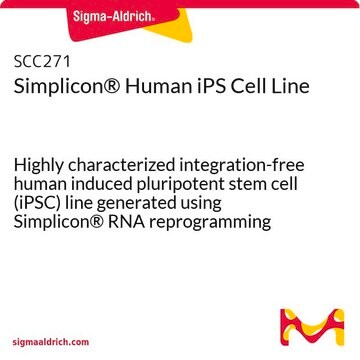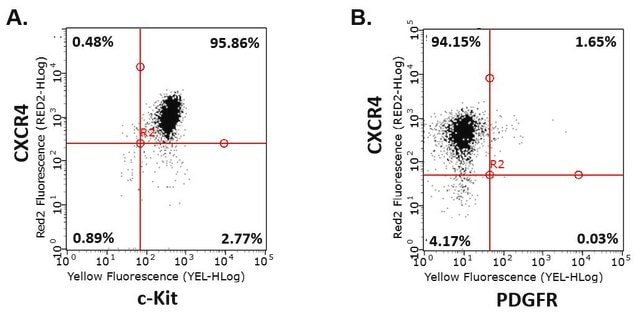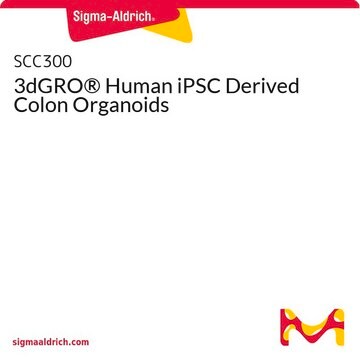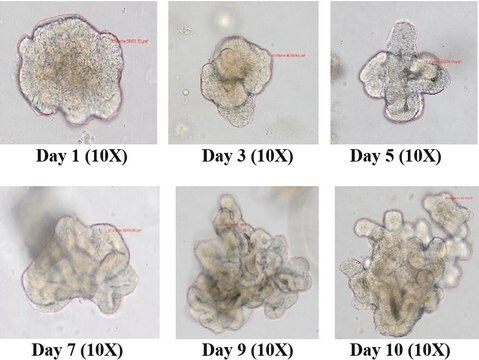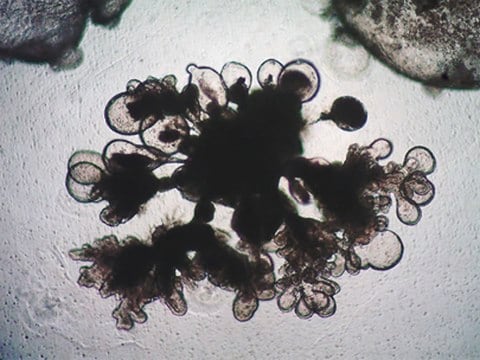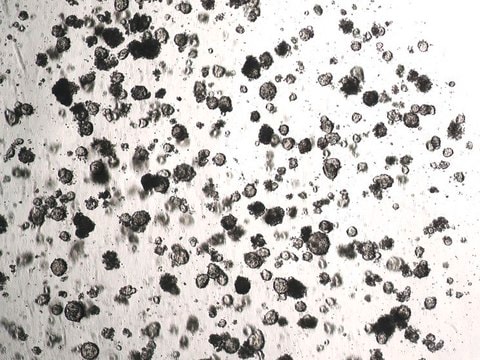SCC301
Human iPSC Derived AFE Progenitors
Cryopreserved human iPSC derived anterior foregut endoderm (AFE) progenitor cells that express Sox2, Pax9 and EpCAM.
About This Item
Recommended Products
technique(s)
cell culture | stem cell: suitable
application(s)
cell analysis
General description
The human iPSC derived AFE progenitors are a component of the 3dGRO® Human Lung Organoid Culture System which can be used to differentiate human iPS cells into mature lung organoids that structurally resemble the <italic>in vivo</italic> branching airway and early alveolar structures. The 3dGRO® Human Lung Organoid Culture System includes (all sold separately):
- Definitive Endoderm Induction Medium (SCM302)
- Anterior Foregut Endoderm Induction Medium I (SCM305)
- Anterior Foregut Endoderm Induction Medium II (SCM306)
- 3dGRO® Lung Organoid Branching Medium (SCM307)
- 3dGRO® Lung Organoid Maturation Medium (SCM308)
- Human iPSC Derived AFE Progenitors (SCC301)
Research Category:
- Cell Culture
- Stem Cell Research
Cell Line Origin
Packaging
Storage and Stability
Legal Information
Disclaimer
Storage Class Code
10 - Combustible liquids
WGK
WGK 3
Flash Point(F)
Not applicable
Flash Point(C)
Not applicable
Certificates of Analysis (COA)
Search for Certificates of Analysis (COA) by entering the products Lot/Batch Number. Lot and Batch Numbers can be found on a product’s label following the words ‘Lot’ or ‘Batch’.
Already Own This Product?
Find documentation for the products that you have recently purchased in the Document Library.
Articles
Lung organoids are valuable 3D models for human lung development and respiratory diseases. The 3dGRO™ differentiation protocol generates organoids from human iPSCs in 4 steps.
Lung organoids are valuable 3D models for human lung development and respiratory diseases. The 3dGRO™ differentiation protocol generates organoids from human iPSCs in 4 steps.
Lung organoids are valuable 3D models for human lung development and respiratory diseases. The 3dGRO™ differentiation protocol generates organoids from human iPSCs in 4 steps.
Lung organoids are valuable 3D models for human lung development and respiratory diseases. The 3dGRO™ differentiation protocol generates organoids from human iPSCs in 4 steps.
Our team of scientists has experience in all areas of research including Life Science, Material Science, Chemical Synthesis, Chromatography, Analytical and many others.
Contact Technical Service